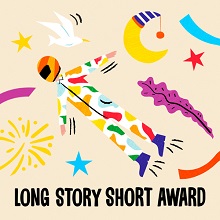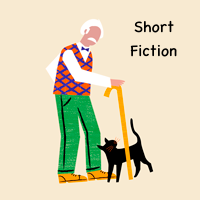Allison stood in line with the rest of her class, waiting for the school doors to open. Usually first thing in the morning was a quiet time, but today kids were talking happily—and loudly. This was ... [+]
That’s how it felt the first day of blindness.
It wasn’t so hard to wander my house in the dark – I had done so dozens of times growing up. My siblings and I used to tie bandanas around our head and wander the house, pretending to be blind. Getting around wasn’t so bad.
Eating breakfast was a little awkward when I missed the bowl with my spoon and dented the wood, and then again when I tried to clean some spilled cream of wheat and made more of a mess. I wasn’t bothered; coordination would come.
Instead of using my cell phone to call my friends I used the home phone because I could feel the buttons. It only took a couple seconds with my sister for me to confirm their placement, but I had to make sure.
I spent the first day meandering to develop a feel for my environment, and talking to friends, letting them know my situation. The hospital had been too far for them to visit, and I hadn’t been very lucid the first several days after the accident for a phone call to be worth much.
“We’ll keep praying for you.”
“We’ll help you through this.”
“Is there anything we can do for you?”
I was still soaked in 109 degrees and my cheerful replies were genuine.
***
I perked up at my mother’s slippers tapping the hallway tile as I ate breakfast.
“What’s your plan for today?” Her tapping stopped to my right, near the stove counter. A glass plate rattled off the stack by the pot of cream of wheat. I heard a plop, imagining a portion of pale brown goo like egg yolk on the egg white plate. A stool shrieked against the tile to my left.
I grimaced at the sound, swallowing another spoonful, which was just warm enough to be pleasant still.
“I’m going to paint.” My eyes flicked down to the cream of wheat out of habit, as I lifted another spoonful.
My mother didn’t say anything.
I swallowed. It was cold.
Still no reply.
My stool shrieked as I stood up.
“You need to get more of those circle things for the chair legs.”
Silence.
***
I only have four bottles of acrylic paint – red, blue, yellow, and white; I believe in mixing my own colors. The expensive colored pencils are kept organized in slots in yellow cloth that can be rolled up. There were enough slots empty when I was last organizing to put my charcoal pencils and various lead pencils there too. I have watercolor paints – in tubes, oddly enough. I have a plastic palette that used to be white, but now is peppered and smudged in stains from watercolor paints left overnight one too many times. My prized paints are delicate oil tubes that I still haven’t worked up the courage to use.
Sketchbooks fill the drawer under this one – from my bold elementary years and my angsty junior high phase. My recent notebooks are the ones I prefer; I’ve moved on from portraits to focus on landscapes. I like capturing a place. It transports you somewhere else.
I found my watercolor tubes with little trouble. They are in odd metallic containers with a slip of paper wrapped around the waist and a nub of plastic as a cap.
Then I walked to the kitchen, my finger scraping the wall all the way so I wouldn’t miss a turn.
***
I flipped open the sketchbook, feeling for a page empty of layers of paint or pen indents. Then I squeezed a drop of watercolor paint onto the palette, measuring out the distance with my finger before placing another drop, careful to keep the pigments separate.
I pulled a paintbrush from my pocket and dipped it into the water.
Then I stared.
I stared blankly, numbly, emptily. Blindly.
I stared blindly at blackness. At where I knew my blue sketchbook with its worn cover was and where the jar with the butterfly pattern was and where the used-to-be-white palette was with the three watercolors that I couldn’t even be sure were red, yellow, and blue.
I didn’t cry. I didn’t scream like I should have. I just stared.
109 degrees faded, and I was covered in ice.
***
We spent a week in the forest to get away. My mother thought it would be good for me to have some fresh air—a change in my perspective is what she really wanted. That was what I chose to believe, because another part of me knew she was sick of warding off loving friends who thought that they could cheer me up by describing the world or distract me by talking about their own struggles.
I knew what the world looked like. I knew how disgusting the neighbor’s pool was by scent—olive green watery-acrylic with flecks of brown, the surface stagnant, with no diamond ripples. I felt the musk of the rainclouds on the drive north—smudged charcoal layers on thick paper. I knew the blueberries on top of my pancakes were magenta instead of indigo when they split bitter juice under my teeth. I knew what the world looked like.
But I couldn’t paint it.
I was a sprinter without legs, a drummer without arms, and a singer without a tongue.
***
“Things happen for a reason.” My mother told me our first day at the camping site, when she found me sitting on the picnic bench, staring into the sun.
I didn’t say anything.
“I know things seem hopeless right now, but it won’t always be like this.” There was a moment of silence before she added, “There’s more to life than painting.”
A cold smile spread across my face.
“So, I can still go to college without a painting scholarship?”
Her teeth clicked together.
“It doesn’t matter anymore. I only wanted to go to college to paint.”
She wrapped an arm around my shoulder but I stood up, walking away towards who knew what.
I tripped over nothing at her voice to my left. “I know you don’t want to listen to me but you know that God wouldn’t give you a trial you couldn’t handle.”
I whipped to face her voice, snarling. “You know what? If God did this to me then I’d hate to end up with Him in the next life! I’d rather go to Hell.”
***
I woke up the second night with welcome warmth caressing my cheek. At first, I thought it was morning, but when my skin began to blister, I realized the tent was burning.
I sat up in my bed and waited to go to Hell.
She came to me.
By the time I heard her voice my skin was blistered and melted beyond repair. The cries of my family—if there were any to be heard—were drowned out by the crackling forest around us. Sweat sizzled on my skin as I burned alive. If I had ever wondered what being inside an oven felt like, I knew now.
“It is time.” Her voice was labored, as if she too couldn’t stand the smoke.
My lips were melted shut, but I thought, About time.
Then my soul was mercifully ripped from my flesh.
***
Hell regarded me with eyes were as black as blindness. “We don’t often get volunteers.”
“Volunteers?” I wasn’t looking at her anymore, instead I was drinking in the scenery. We were walking barefoot over lime-green grass and under a sapphire-blue sky. A palace reached up towards the sun, skeletal and bone-white ahead of us; a violent sea stretched out to the left, and on the right was a never-ending forest of gold. I was grinning like I hadn’t in weeks – I could see.
“You chose to come here. God will never force someone to go to Heaven.”
We reached the palace, and the doors swung open.
“Follow Obsession.” Hell commanded me.
I followed him to a painting studio, and there in Hell’s realm I found my heaven. Thoughts of my family, of life, or of God and greater purpose never crossed my mind again.



